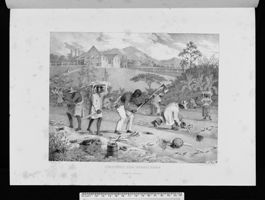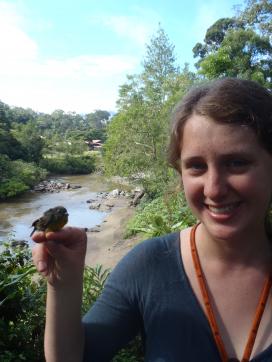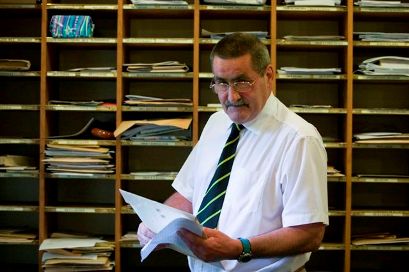 Did abolition of the transatlantic
slave trade damage enslaved women's health?
Did abolition of the transatlantic
slave trade damage enslaved women's health?
In 1807, the British parliament voted to abolish the transatlantic slave trade, following a long campaign led by William Wilberforce.
While most plantation owners opposed abolition, a few did not - including Joseph Foster Barham II, who owned Mesopotamia sugar estate in Jamaica.
Appalled by the suffering caused by the slave trade, Foster Barham (as MP for Stockbridge) voted with Wilberforce in the House of Commons for abolition and voluntarily ceased to purchase new African arrivals in 1792, 15 years before legal abolition. Mesopotamia's records are unusually detailed and record the ages, date of arrival, origin (whether African or born on the estate), health status, and work duties of 1,099 enslaved individuals on the estate between 1762 and 1832. These manuscripts are preserved in the Bodleian Library, Oxford.
On Mesopotamia, withdrawal from the slave trade led to an increase in the number of women sent to work in the cane fields, work considered to be the most arduous and riskiest on a plantation. Survival analysis suggests there was an accompanying deterioration in their survival chances: estimates suggest the risk of death was about 55% to 75%higher for women arriving on the estate after 1792 than before. To test whether exposure to fieldwork accounts for reduced survival prospects, the actual survival times of slaves (i.e. time to death) was compared with their counterfactual survival times had they never been exposed to fieldwork. The technique employed is intended to avoid problems caused by the ‘healthy worker survival effect': the tendency for labourers to be withdrawn from a hazardous occupation as their health failed, and reallocated to lighter duties.
Estimates suggest that continuous exposure to fieldwork on a sugar estate, relative to never being exposed, reduced survival times by approximately 30%. Consequently, the dread slaves felt at being sent to the fields appears well placed, especially for women who were less likely to occupy supervisory roles in sugar cultivation and, therefore, enjoyed the least amount of protection.

 By Roberta Iley (Biological Sciences 3rd Year)
By Roberta Iley (Biological Sciences 3rd Year) Brasenose is pleased to announce the appointment of Jonathan Newell as the College's first Director of Music. The post is designed to build on the work Nick Prozzillo has done as Graduate Director of Music, giving the college the benefit of an experienced musician supervising not only the choir and chapel music, but also our concerts (professional and amateur) and our wider musical life.
Brasenose is pleased to announce the appointment of Jonathan Newell as the College's first Director of Music. The post is designed to build on the work Nick Prozzillo has done as Graduate Director of Music, giving the college the benefit of an experienced musician supervising not only the choir and chapel music, but also our concerts (professional and amateur) and our wider musical life. The college was deeply saddened by the sudden
death this term of Michael Taylor, our Head Porter. Mike had been with us since 1992, and became
a much-loved (even iconic) figure in college life. He was generally the first person visitors
and freshers met; and upheld the dignity of his position without ever losing
his sense of humour at the occasional absurdities of lodge life. He is survived by his wife Pat, daughter
Juli, son Joe and granddaughter Annabel.
The college was deeply saddened by the sudden
death this term of Michael Taylor, our Head Porter. Mike had been with us since 1992, and became
a much-loved (even iconic) figure in college life. He was generally the first person visitors
and freshers met; and upheld the dignity of his position without ever losing
his sense of humour at the occasional absurdities of lodge life. He is survived by his wife Pat, daughter
Juli, son Joe and granddaughter Annabel.